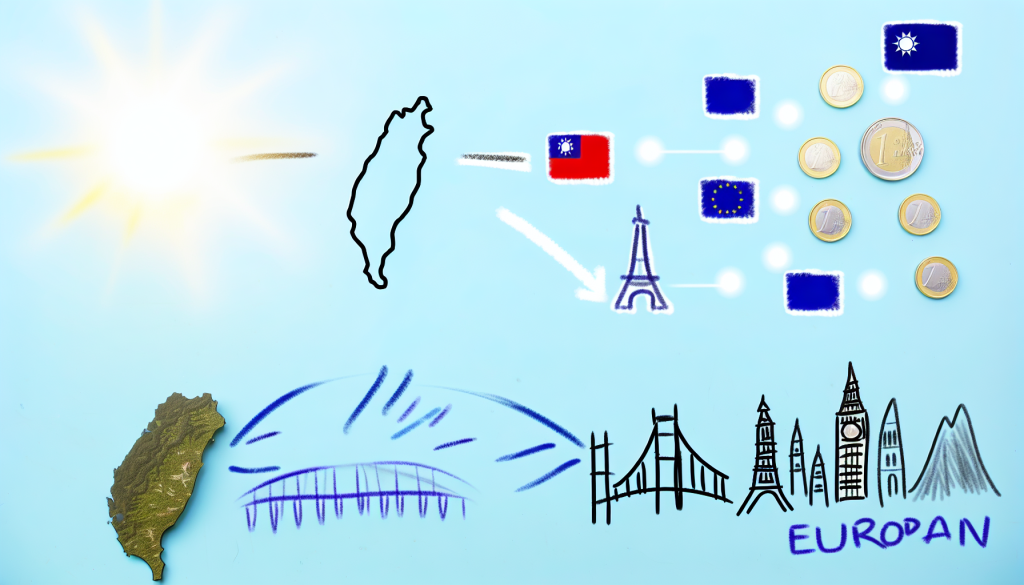Taiwan Ramps Up Defence Spending and Expands Military Partnerships With Europe
In a dramatic pivot towards self-reliance, Taiwan has ramped up its defence spending and sought to expand military partnerships with European nations. This strategic shift comes amid growing uncertainty regarding US support, particularly in light of potential changes in Donald Trump’s China policy.
Welcoming Trump’s Re-election: A Double-Edged Sword
Initially, Taiwanese officials celebrated Trump’s re-election, reminiscing about his proactive stance during his first term. His administration’s approach included expanded arms sales and high-profile engagements with Taiwan, fostering a sense of security. With Taiwan housing the world’s largest semiconductor manufacturer, crucial for powering US AI industries, there was reason for optimism.
However, Taiwanese policymakers now face a pressing question: What if the United States reduces its security commitments? This fear has prompted a reevaluation of strategies amid Trump’s shifting focus towards negotiating a trade deal with China.
Unsettling Signs: Trade Talks and Delayed Arms Sales
Recent remarks from Trump suggesting that Taiwan could be included in a more extensive US-China negotiation, coupled with new tariffs and postponed arms sales, are causing anxiety in Taipei. Amid these developments, Taiwanese officials are recalibrating their strategies to hedge against the possibility of weakened US security guarantees while still striving to secure Washington’s commitment to their island.
Defence Spending Surge: A Commitment to Self-Defence
In his national day address on October 10, President Lai Ching-te outlined a dual strategy focused on self-reliance. Taiwan has pledged to increase its defence spending to over 3% of GDP by 2026 and aims for 5% by 2030. This extensive plan includes the development of a new air-defence system, dubbed “T-Dome,” alongside a special defence budget that could be worth around $33 billion, intending to bolster military capabilities primarily through American-sourced hardware.
Observers note that this surge in defence spending is aimed at reassuring both Washington and Beijing. Taipei wants to showcase its commitment to investing in military readiness, countering concerns about US disengagement while simultaneously deterring potential aggression from China.
Charm Offensive and Expanding Diplomatic Ties
Beyond improving domestic defence capabilities, Taiwan is quietly extending its diplomatic outreach beyond US borders. President Lai is initiating collaborations with European nations, focusing on sectors like drones and asymmetric military capabilities. The geopolitical landscape has prompted European countries to ramp up their defence spending, particularly in the wake of the Ukraine crisis.
During September’s defence expo in Taipei, there was notable European representation, with countries like Germany and corporations such as Airbus showcasing tactical drones. Additionally, Taiwan has signed cooperation agreements with Poland and Ukraine for aerial drone manufacturing, indicative of a broadening military relationship.
These partnerships, although unable to replace the security guarantees from the US, provide Taiwan with much-needed technology and expertise to enhance its military capabilities. Officials have been careful to navigate these collaborations cautiously to avoid igniting tensions with China.
Political and Institutional Hurdles at Home
Despite these proactive measures, Taiwan still faces significant political and institutional challenges domestically. Opposition voices, particularly from newly elected Kuomintang leader Cheng Li-wun, express skepticism regarding the proposed increases in defence spending. Critics remind the public that even with full backing from Trump and US allies, Taiwan cannot entirely rely on external support for its security.
This situation places Taiwan’s policymakers in a delicate balancing act; they must signal their commitment to self-defence while simultaneously courting alternative partnerships and maintaining the attention of Washington without provoking China.
Strategic Calculus: Deterrence through Capability and Diplomacy
Taiwan’s overarching hope is to convince Beijing that any military aggression would incur greater costs than potential benefits. By boosting military expenditures and fostering ties with European allies, Taipei aims to hedge against the unpredictability of US support while carefully avoiding overt provocations that could trigger escalations.
As the anticipated Trump-Xi summit approaches, Taiwan’s strategy reflects a pragmatic acknowledgment of today’s geopolitical uncertainties: while America remains a crucial ally, a credible Plan B is essential for the island’s security future.

